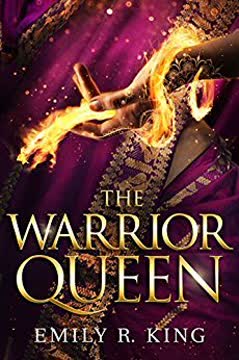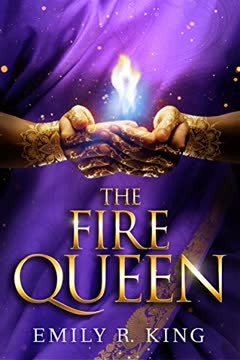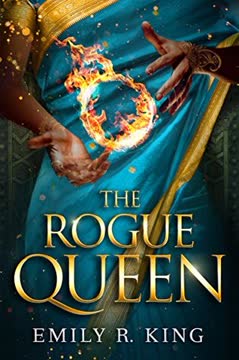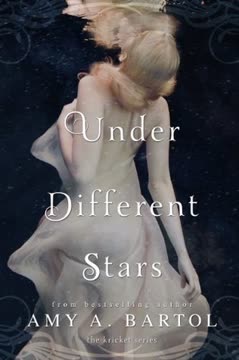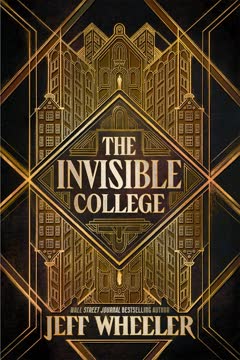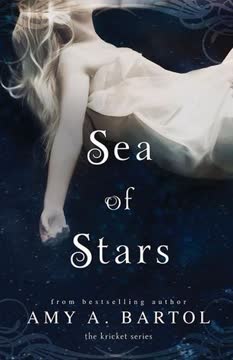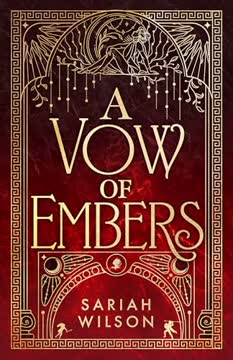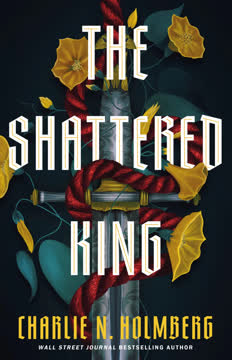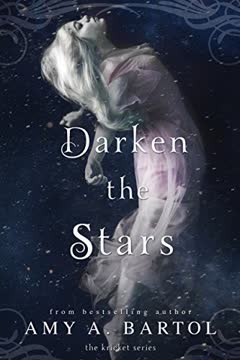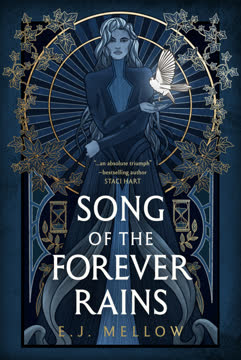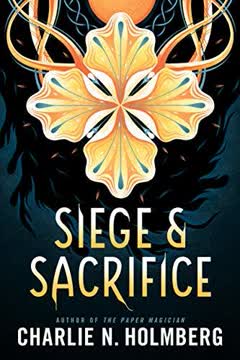Plot Summary
Prologue: A Mother's Farewell
Thirteen years before the main events, a rani tells her young son a cherished tale of love, loss, and the underworld. She soothes him with the story of Inanna, a woman whose beloved is stolen by a demon, and who braves the Void to rescue him. The boy, comforted, falls asleep, unaware this is their last night together. The next morning, he is sent away from the palace, his mother unable to say goodbye. This moment of maternal love and sorrow sets the emotional foundation for the saga, echoing through the lives of the characters as they struggle with separation, longing, and the hope of reunion.
Nightly Visits and Lingering Loss
Kalinda, once a queen and now a teacher and warrior, endures the pain of separation from Deven, her beloved, who is trapped in the Void. Each night, he visits her through the shadows, growing weaker as the underworld drains his soul. Their stolen moments are bittersweet, filled with longing and the fear of final loss. Kalinda's world is one of rebuilding—training the last Burner children, navigating political unrest, and mourning her best friend Jaya. The empire is fragile, haunted by old hatreds and the ghosts of war. Kalinda's hope is a fragile flame, kept alive by love and the promise that fate can be changed.
Bhuta Children and Rising Tensions
Kalinda and her allies work to integrate bhuta children—those with elemental powers—into society, but fear and prejudice run deep. Commander Lokesh, a former officer, stirs dissent, exploiting the people's anxieties about bhutas. The children's training is fraught with accidents and suspicion, and Kalinda's own status as "Burner Rani" is both a badge of honor and a mark of otherness. The city teeters between hope and backlash, as old wounds fester and new alliances are tested. The struggle to protect the vulnerable and build a new future is shadowed by the threat of violence and betrayal.
Shadows of the Past
Ashwin, the young prince, and Kalinda both search for a way to free Deven, delving into ancient stories and personal memories. The tale of Inanna's Descent becomes a key, its details half-remembered and hidden in childhood murals and nursery rhymes. Kalinda's dreams are haunted by drowning, claws, and the voice of a queen in the dark. The past is not dead—it shapes the present, as the characters confront the legacies of trauma, lost love, and the choices of those who came before. The search for a god's guidance becomes a quest for self-understanding and the courage to face the unknown.
The Search for Deven
Kalinda's determination to save Deven grows as hope fades. She learns that mortals trapped in the Void are doomed to eternal death, their souls lost to rebirth. The revelation is devastating, but also galvanizing. With Ashwin's help, she uncovers the mural of Inanna's journey and the crucial detail: only a god can guide a mortal safely through the underworld. Refusing to wait or accept defeat, Kalinda sets out to find the gods' temple, Ekur, risking everything for love. Her journey is both physical and spiritual, a test of faith, will, and the meaning of sacrifice.
The Tale of Inanna
Kalinda's quest leads her north, accompanied by Tinley, a Galer warrior. In the icy mountains, they seek Ekur, the legendary home of the gods. Along the way, Kalinda learns the deeper truths of her world's mythology: the gods once walked among mortals, and the cycles of love, loss, and heroism repeat across generations. The story of Inanna is not just a myth—it is a mirror of Kalinda's own life, hinting at reincarnation and the eternal return of souls. The boundaries between legend and reality blur, as Kalinda's identity becomes entwined with the fate of the empire and the gods themselves.
A God's Bargain
In the heart of Ekur, Kalinda meets Enlil, the fire-god, whose beauty and power are overwhelming. He recognizes her as Cala, his beloved from past lives, and offers to guide her through the Void in exchange for a future favor. The bargain is fraught with unspoken costs and the weight of destiny. Enlil's love is both a blessing and a burden, as Kalinda must navigate the tangled loyalties of her soul—between the god who claims her and the mortal man she loves. The journey into the underworld begins, marked by peril, temptation, and the ever-present question of what one is willing to sacrifice for love.
Journey to Ekur
Kalinda and Tinley brave the wilds, facing ancient gates, sacred stories, and the pain of old wounds. In the frozen north, they encounter the matron Anoush, who reveals the secret of the mahati falcons and the true path to Ekur. The journey is a crucible, forging bonds of friendship and forcing Kalinda to confront her own grief and guilt. The past is ever-present, as the stories of the gods and the lives of mortals intertwine. The cost of seeking the divine is high, and the answers found are never simple. The journey is as much about self-discovery as it is about rescue.
The Seven Gates
Guided by Enlil, Kalinda descends through the seven gates of the Void, each guarded by monstrous rabisus and marked by trials of body and spirit. The journey is harrowing: seas of blood, deserts of anguish, valleys of mirrors that reflect past lives and hidden selves. Kalinda confronts the truth of her reincarnations, her connection to Inanna and Cala, and the price of her choices. The underworld is a place of memory and forgetting, where the soul is tested and the heart's desires are laid bare. The journey strips away illusions, leaving only the core of who she is and what she loves.
The Void's Toll
Trapped in the evernight, Deven fights to hold on to his identity and his love for Kalinda. The Void gnaws at his soul, erasing memories and hope. He carves her name into his dagger, a desperate act of remembrance. The underworld is a place of endless wandering, where the living and the dead are indistinguishable, and the self is always at risk of dissolution. Deven's ordeal is a testament to endurance, faith, and the power of love to resist oblivion. His suffering is mirrored by Kalinda's, as both are tested to the limits of their strength and will.
The Queen of the Dead
At the heart of the Void, Kalinda and Enlil confront Irkalla, the queen of the dead. She holds Deven captive, demanding Kalinda's soul in exchange for his release. The confrontation is a battle of wits, wills, and ancient grievances. Irkalla reveals the truth of Kalinda's past lives, her connection to Inanna, and the cycles of love and loss that bind her to both Enlil and Deven. The price of memory is steep, and the cost of freedom is never simple. The struggle is not just for Deven's life, but for the right to choose one's own fate.
The Price of Memory
Kalinda's journey through the Void forces her to confront the shadows of her past—her lives as Cala and Inanna, her love for Enlil, and the violence she once wielded. The mirrors of the underworld reflect not just who she was, but who she might become. The battle for Deven's soul is also a battle for her own, as she must decide what to keep, what to let go, and what it means to be true to herself. The price of memory is the pain of regret, but also the possibility of redemption. In the end, Kalinda claims her own destiny, refusing to be defined by gods or fate.
The Demon's Plot
While Kalinda fights in the underworld, the mortal realm is beset by treachery. Commander Lokesh, driven by resentment and ambition, conspires with demons to seize the throne and deliver the bhuta children to Irkalla. The palace falls to his mercenaries, and Ashwin is betrayed and exiled. The children are hunted, the city is thrown into chaos, and the line between friend and foe blurs. The cost of trust is high, and the price of power is paid in blood and heartbreak. The struggle for the future of the empire comes to a head, as old enemies return and new alliances are forged in desperation.
The Siege of Vanhi
The city of Vanhi becomes a battleground, as Ashwin, Gemi, and their allies fight to reclaim the palace and protect the innocent. The execution of Gemi is narrowly averted, and the people are forced to confront the consequences of their fear and prejudice. The cost of peace is revealed to be vigilance, courage, and the willingness to forgive. The siege is not just a military struggle, but a test of the empire's soul. The choices made in the heat of crisis will shape the future for generations to come.
The Fall of the Palace
As the palace falls and the city teeters on the brink, Kalinda and her friends must draw on every ounce of strength, wisdom, and love they possess. The battle is fought not just with weapons, but with words, compassion, and the refusal to give in to despair. The bonds of sisterhood, friendship, and family are tested and renewed. The cost of victory is high, but the rewards are profound: a new beginning, a chance to heal, and the hope of a better world. The fall of the palace is also the rise of a new order, built on trust, equality, and the lessons of the past.
The Battle for Souls
In the final confrontation, Kalinda faces Irkalla, Enlil, and the demons in a battle for the souls of the children, Deven, and herself. The power of love, memory, and self-determination triumphs over the forces of darkness and fate. Deven is restored, reborn as a bhuta, and the gate to the underworld is closed. Enlil and Cala part with gratitude and sorrow, their love honored but no longer binding. The cycle of violence and vengeance is broken, and the possibility of peace is born. The battle for souls is won not by force, but by the courage to choose one's own path.
The Choice of the Heart
With the empire saved and the dead laid to rest, Kalinda, Deven, Ashwin, and Gemi must decide where they belong and what kind of future they will build. The lessons of the past—of love, loss, and the cost of power—inform their choices. Forgiveness becomes the foundation of a new society, where bhutas and mortals live as equals, and the wounds of history begin to heal. The choice of the heart is not just about romance, but about purpose, community, and the courage to hope. The story ends with the promise of dawn, a city reborn, and the enduring power of love.
Dawn in the City of Gems
The story concludes with a celebration in Vanhi, the City of Gems. The Sisterhood temple is dedicated, the children are safe, and the empire is united under new, compassionate leadership. Kalinda and Deven choose to stay, building a life together rooted in service, love, and the lessons of their journey. Ashwin and Gemi's partnership signals a new era of peace and progress. The ghosts of the past are honored, but no longer rule the present. The dawn brings not just light, but the promise of a future shaped by forgiveness, resilience, and the unbreakable bonds of the heart.
Characters
Kalinda
Kalinda is the heart of the story—a woman forged by suffering, loss, and the relentless pursuit of love and justice. Once a queen, now a teacher and warrior, she is marked by her Burner powers and the loss of her hand, both symbols of sacrifice and resilience. Her relationships—with Deven, Ashwin, her friends, and the gods—are complex, shaped by loyalty, longing, and the struggle for autonomy. Psychologically, Kalinda is haunted by trauma and the weight of destiny, but she refuses to be defined by her past lives or the expectations of others. Her journey is one of self-acceptance, the reclamation of agency, and the courage to choose her own fate, even when it means defying gods and risking everything for love.
Deven
Deven is Kalinda's beloved, a general whose strength lies in loyalty, humility, and quiet courage. His ordeal in the Void strips him to his core, testing his faith and identity. The erosion of his memory is both a literal and symbolic threat, representing the fragility of self in the face of suffering. Deven's love for Kalinda is steadfast, but he is also a man of principle, torn between duty and desire. His transformation—reborn as a bhuta—mirrors the story's themes of renewal and the possibility of change. Deven's journey is one of endurance, the rediscovery of hope, and the affirmation that love can survive even the darkest night.
Ashwin
Ashwin, the young prince, is a study in contrasts: gentle yet determined, haunted by his parents' legacy yet striving to forge his own path. His psychoanalysis reveals a man burdened by guilt, longing for approval, and afraid of repeating the mistakes of the past. Ashwin's relationships—with Kalinda, Gemi, and his people—are marked by vulnerability and the desire to do right. His growth is measured in moments of courage, the willingness to listen, and the humility to admit when he is wrong. Ashwin's arc is one of maturation, the embrace of responsibility, and the hope that leadership can be an act of service rather than domination.
Enlil
Enlil is both a literal deity and a symbol of the seductive power of destiny. His love for Kalinda (Cala/Inanna) is passionate, possessive, and fraught with the dangers of immortality. Psychologically, Enlil is both generous and manipulative, offering aid at a price and struggling with the limits of his own power. His relationship with Kalinda is a mirror of the story's central conflict: the tension between fate and free will, love and autonomy. Enlil's development is marked by the acceptance of loss, the willingness to let go, and the recognition that true love cannot be compelled.
Gemi
Gemi, princess of the Southern Isles and Ashwin's viraji, is a force for change—intelligent, compassionate, and unafraid to challenge tradition. Her outsider status makes her both a target and a catalyst, as she navigates prejudice and the expectations of power. Gemi's psychological depth lies in her longing for belonging, her commitment to education and reform, and her refusal to be defined by others' fears. Her relationship with Ashwin is a partnership of equals, built on mutual respect and the shared dream of a better world. Gemi's arc is one of integration, the healing of old wounds, and the creation of new possibilities.
Commander Lokesh
Lokesh is the story's primary human antagonist, driven by bitterness, envy, and a sense of dispossession. His psychological profile is shaped by childhood trauma, the loss of status, and the corrosive effects of hatred. Lokesh's manipulation of fear and prejudice is both a personal vendetta and a reflection of societal ills. His relationship to Ashwin is fraught with rivalry and the shadow of their shared father. Lokesh's arc is a cautionary tale of what happens when pain is left to fester, and the cost of refusing to forgive.
Tinley
Tinley, a Galer and daughter of Chief Naresh, is a study in resilience and the complexities of grief. Her losses—of love, family, and home—shape her guardedness and her fierce loyalty to Kalinda. Tinley's powers and skills are matched by her emotional intelligence, as she helps Kalinda navigate both physical and psychological trials. Her development is marked by the willingness to return home, the healing of old wounds, and the embrace of new connections.
Brac
Brac, Deven's brother and a Burner, provides both levity and wisdom. His role as bhuta ambassador places him at the center of political and personal conflicts. Psychologically, Brac is driven by loyalty, a sense of justice, and the need to protect his family. His development is seen in his ability to adapt, to forgive, and to support those he loves, even when it means letting go.
Irkalla
Irkalla is the embodiment of the underworld's dangers—seductive, cruel, and relentless. Her psychological makeup is that of a being who thrives on suffering, manipulation, and the perpetuation of cycles of loss. Irkalla's relationship to Kalinda and Enlil is adversarial, but also revelatory, forcing them to confront the darkest parts of themselves. She is both a literal and symbolic antagonist, representing the forces that seek to bind, consume, and erase.
Jaya
Jaya, Kalinda's best friend, is both a presence and an absence—a reminder of what has been lost and what is worth fighting for. Her death haunts Kalinda, shaping her guilt and her longing for redemption. Jaya's reincarnation as Jala, the child, is a symbol of renewal, the persistence of love, and the hope that the bonds of sisterhood can survive even death.
Plot Devices
Reincarnation and Cyclical Destiny
The narrative is structured around the concept of reincarnation, with Kalinda revealed as the latest in a line of souls—Inanna, Cala, and others—who have loved, lost, and fought across generations. This device allows the story to explore the persistence of trauma, the possibility of change, and the tension between fate and free will. The myth of Inanna's Descent is both a literal guide and a metaphor for the journey through grief, memory, and self-discovery. The cyclical nature of the plot is mirrored in the characters' struggles to break old patterns and claim new futures.
Duality and Mirrors
Mirrors, both literal and figurative, are used throughout the story to force characters to confront their past selves, hidden desires, and the consequences of their actions. The Valley of Mirrors is a pivotal plot device, compelling Kalinda to face the violence and choices of her previous lives. The duality of love—between Enlil and Deven, fate and choice—is played out in the characters' relationships and the structure of the narrative. The use of doppelgängers, chameleon demons, and shifting identities reinforces the theme that the self is always in flux, shaped by memory, desire, and circumstance.
The Seven Gates and Hero's Journey
The descent through the seven gates of the Void is a classic hero's journey, with each gate representing a trial of body, mind, or spirit. The structure is both episodic and cumulative, building tension and deepening the stakes with each obstacle. Foreshadowing is used to hint at the dangers ahead, the costs of failure, and the possibility of redemption. The journey is not just physical, but psychological—a stripping away of illusions, a confrontation with the self, and the forging of a new identity.
Political Intrigue and Social Change
The story's external conflicts are driven by political machinations, social unrest, and the struggle to build a more just society. The integration of bhutas, the abolition of the Claiming, and the creation of new institutions are all plot devices that reflect the characters' internal growth and the broader themes of forgiveness, equality, and hope. The use of multiple points of view allows for a nuanced exploration of these issues, showing how personal choices ripple out to affect the fate of the empire.
Memory, Amnesia, and the Cost of Knowledge
The erosion and restoration of memory is a central device, used to explore the fragility of identity, the pain of loss, and the possibility of healing. Deven's struggle to remember Kalinda, Kalinda's confrontation with her past lives, and the manipulation of memory by gods and demons all serve to heighten the emotional stakes and drive the plot forward. The cost of knowledge is a recurring motif—what is gained and lost when the truth is revealed, and what it means to choose one's own story.
Analysis
Emily R. King's The Warrior Queen is a sweeping fantasy that weaves together myth, memory, and the struggle for self-determination. At its core, the novel is about the power of love—not just romantic, but the love that binds friends, family, and communities—and the courage it takes to claim one's own destiny in the face of overwhelming odds. The story interrogates the cycles of violence, prejudice, and loss that shape both individuals and societies, offering a vision of hope rooted in forgiveness, resilience, and the willingness to change. Through the devices of reincarnation, mirrors, and the hero's journey, King explores the tension between fate and free will, the cost of memory, and the possibility of redemption. The characters' arcs are marked by growth, sacrifice, and the refusal to be defined by the past. The novel's ultimate message is that peace and justice are not gifts bestowed by gods or rulers, but achievements won through empathy, courage, and the unbreakable bonds of the heart. In a world haunted by old wounds, The Warrior Queen offers the promise of dawn—a new beginning forged by those brave enough to choose it.
Last updated:
Review Summary
The Warrior Queen received mixed reviews as the final book in The Hundredth Queen series. Many readers praised it as a satisfying conclusion with strong character development, especially for Ashwin. They appreciated the themes of hope, equality, and girl power. However, some felt it was slow-paced and unnecessary, preferring the series had ended earlier. Criticisms included repetitive plot elements and underdeveloped characters. Overall, fans of the series found it a fitting end, while others thought it didn't live up to the first book's promise.
